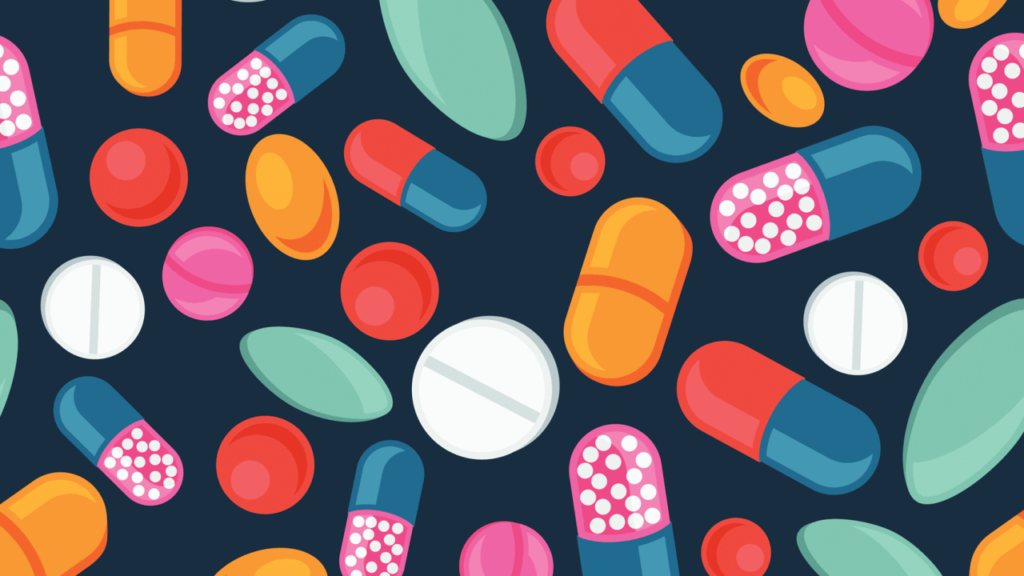Do you know someone with ADHD? If so, you may be wondering if there is anything that can be done to help them. There are a variety of treatments for ADHD, including medication. In this blog post, we will discuss everything you need to know about ADHD medications. We will cover the different types of medication available, as well as their side effects and dosage recommendations. If you are considering giving your loved one ADHD medication, make sure to read this blog post first.
Contents
- 1 What Is ADHD?
- 2 Treatment For ADHD
- 3 ADHD Medication
- 4 Different Types of ADHD Medications
- 5 How Do ADHD Medications Work?
- 6 Dosage of ADHD Medications
- 7 Precautions While Taking ADHD Medications
- 8 Benefits of ADHD Medications
- 9 Side Effects of ADHD Medications
- 10 How To Manage Side-Effects of ADHD Medications?
- 11 Alternatives of ADHD Medication
- 12 Conclusion
- 13 A Word From Therapy Mantra
What Is ADHD?
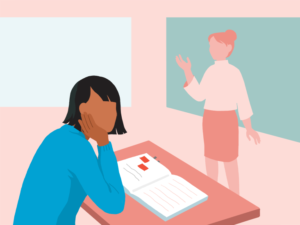 ADHD is a mental disorder that is characterized by problems with focus, hyperactivity, and impulsiveness. ADHD stands for Attention Deficit Hyperactivity Disorder. This disorder stands for around 11% of the population. ADHD affects people differently and can lead to problems in different areas of life.
ADHD is a mental disorder that is characterized by problems with focus, hyperactivity, and impulsiveness. ADHD stands for Attention Deficit Hyperactivity Disorder. This disorder stands for around 11% of the population. ADHD affects people differently and can lead to problems in different areas of life.
Types of ADHD
There are three types of ADHD:
Inattentive type: This type is characterized by problems with focus and concentration.
Hyperactive-impulsive type: This type is characterized by problems with hyperactivity and impulsiveness.
Combined type: This type is characterized by problems with both focus and hyperactivity-impulsiveness.
Signs of ADHD
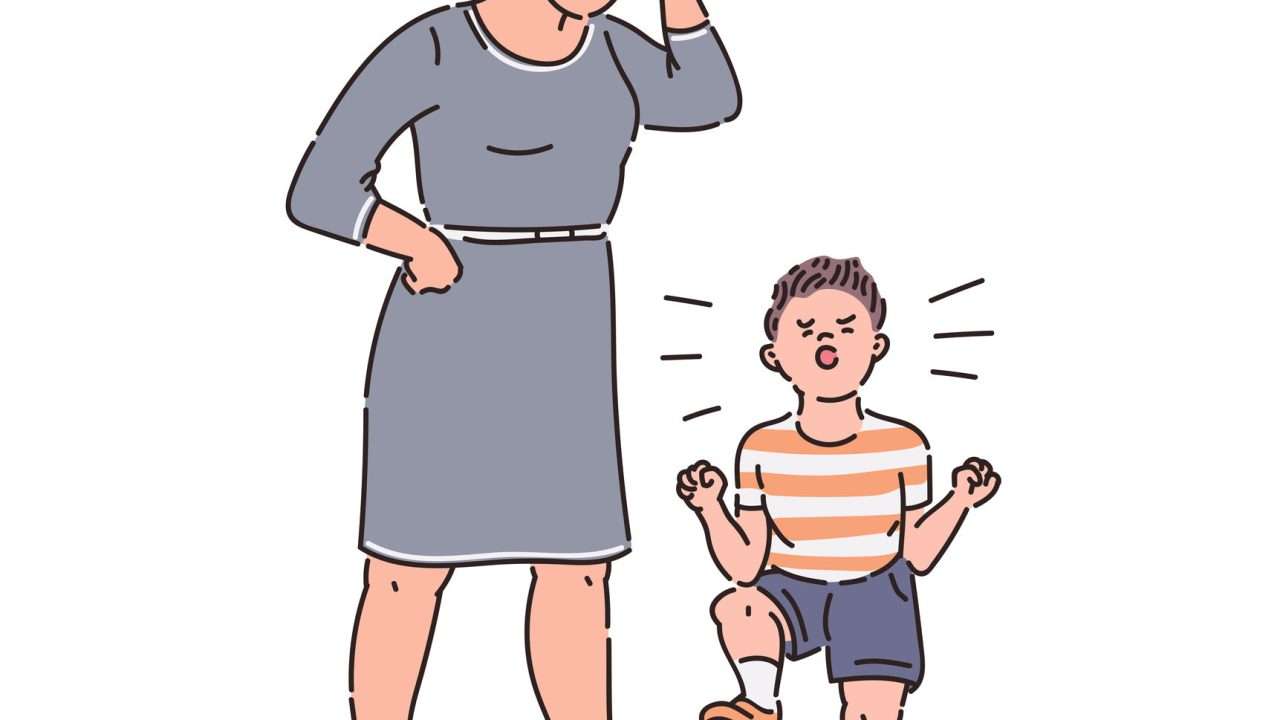
There are many signs of ADHD. Everyone has a different sign of ADHD.
- Inattention: difficulty staying focused on tasks or activities, being easily distracted, forgetting things often, not seeming to listen when spoken to directly
- Hyperactivity: excessive fidgeting and restless behavior, talking non-stop, trouble sitting still
- Impulsiveness: acting without thinking first, blurting out answers, interrupting conversations, having trouble waiting in line.
- Low frustration tolerance: becoming quickly annoyed with others, having a low tolerance for failure
- Emotional difficulties: feeling overwhelmed easily, irritability, having trouble regulating emotions
- Problems with executive functioning: difficulty planning and carrying out tasks, poor time management skills, trouble completing tasks
Causes of ADHD
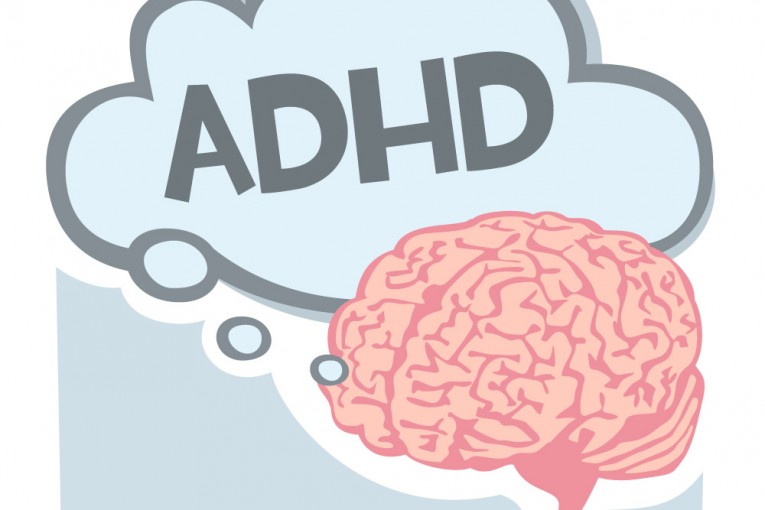
There can be many causes of ADHD as well. Some of these are:
Genetics: Genetics always plays an important role in any mental disorder. If someone in your family has ADHD, then you are more likely to have it as well.
Brain injury: If you have had a head injury or any kind of damage to the brain, then that could lead to ADHD.
Environmental factors: There are many environmental factors that can contribute to ADHD. These include things like exposure to toxins, poverty, and trauma.
Age: Age can also be a factor in whether or not someone develops ADHD. Children are more likely to develop the disorder than adults.
Diagnosis of ADHD
The diagnosis of ADHD can be difficult. Many times, it is hard to distinguish between ADHD and other disorders. It is important to get a diagnosis from a qualified professional. There are many self-tests as well that you can take to see if you may have ADHD.
Treatment For ADHD

Treating ADHD depends on the severity of the disorder. For some people, medication may be necessary. Others may only need therapy or counseling. Some people may need a combination of both.
Medication: The most common type of medication for ADHD is stimulants. These include drugs like Ritalin and Adderall. These medications help to improve focus and concentration.
Therapy: There are many different types of therapy that can be helpful for ADHD. Cognitive-behavioral therapy is one type that can help people learn how to manage their symptoms. Social skills training is another type that can help people with ADHD interact better with others.
Support: Support from family and friends is also important in managing ADHD. There are also many support groups available for people with ADHD.
ADHD Medication
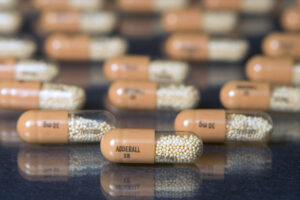
Medications are one of the most common treatments for attention deficit hyperactivity disorder (ADHD). They can help reduce the symptoms of ADHD and improve functioning.
There are a variety of different types of ADHD medications available, and each person with ADHD may respond differently to various medications. It’s important to work with a doctor to find the best medication or combination of medications for your individual needs.
These ADHD medications are available as pills, liquids, or skin patches.
Different Types of ADHD Medications
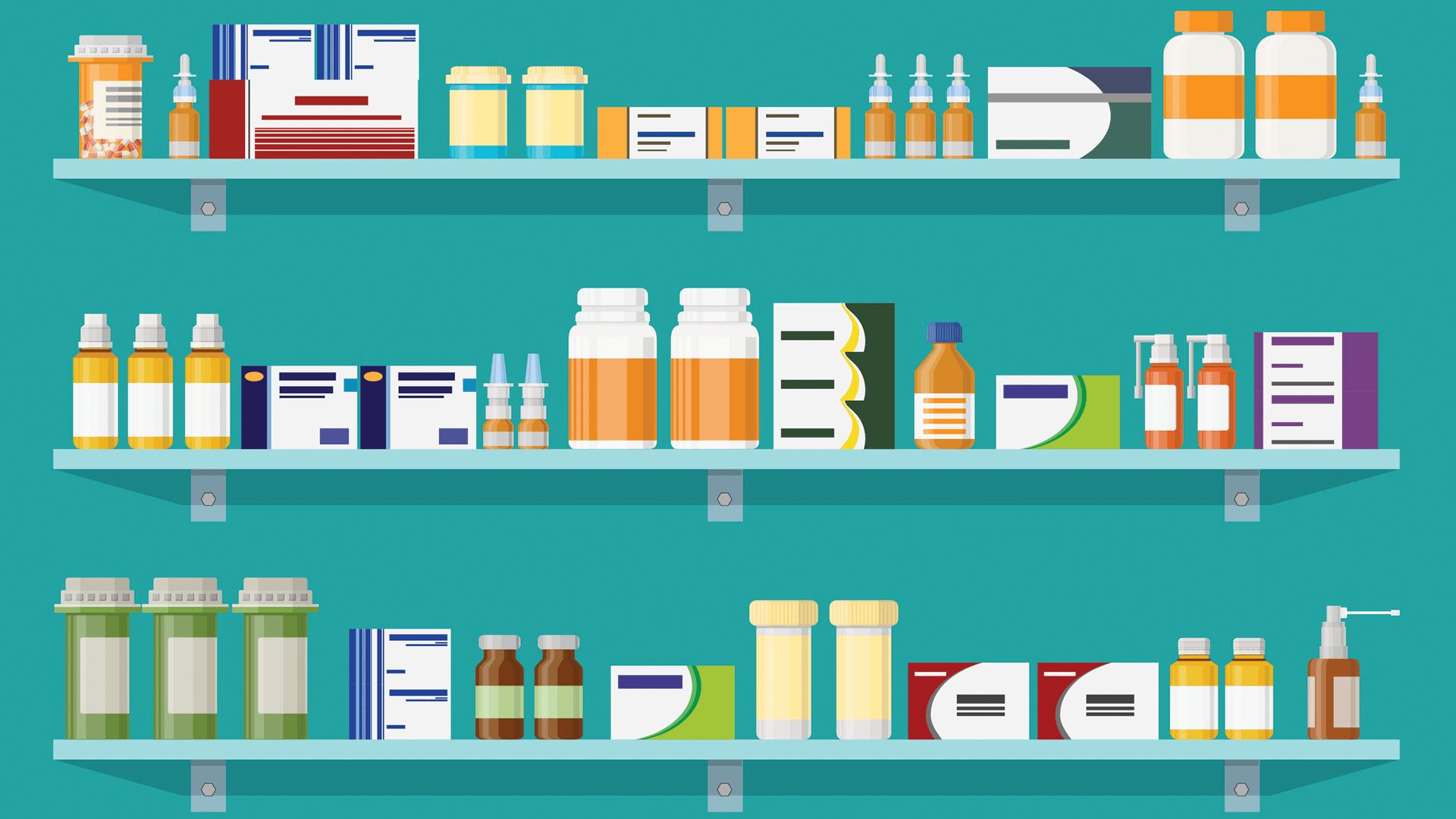
There are different types of ADHD medications available, and each person with ADHD may respond differently to various medications. It’s important to work with a doctor to find the best medication or combination of medications for your individual needs.
Some of the most common types of ADHD medications include:
Stimulants
These are the most commonly prescribed type of medication for ADHD. Stimulants help improve focus, attention, and impulsivity. Examples of stimulant medications include methylphenidate (Ritalin) and amphetamines (Adderall). These stimulants are available in both short-acting and long-acting forms. These also come in pill, liquid, and skin patch forms.
Non-Stimulants
Non-stimulant medications are also available for ADHD. These medications work differently than stimulants and can be helpful for people who don’t respond well to stimulants or have side effects from them. Examples of non-stimulant medications include atomoxetine (Strattera) and guanfacine XR (Intuniv). Non-stimulants are only available as pills.
Antidepressants
Some antidepressants, such as bupropion (Wellbutrin) and venlafaxine (Effexor), can be effective in treating ADHD symptoms. These also come in pill form. These are also considered non-stimulants.
Long-Acting Stimulants
There are also long-acting versions of some common stimulant medications. These medications work for a longer period of time and can help to reduce symptoms throughout the day. Long-acting stimulants include lisdexamfetamine (Vyvanse) and Concerta. These are available as pills.
Skin Patches
There are also skin patch forms of some ADHD medications. The medication is absorbed through the skin and enters the bloodstream. This type of medication can be helpful for people who have trouble swallowing pills or who don’t want to take medication every day. Some examples of ADHD medications in this form include methylphenidate (Daytrana) and amphetamines (Adderall XR).
How Do ADHD Medications Work?
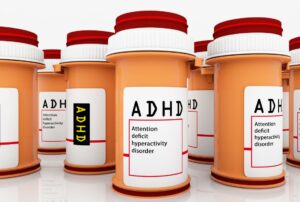 ADHD medications work by increasing levels of certain brain chemicals, such as dopamine and norepinephrine. These chemicals are involved in focus and attention. Stimulant medications work by increasing levels of these chemicals, while non-stimulants work by keeping these chemicals at higher levels for a longer period of time.
ADHD medications work by increasing levels of certain brain chemicals, such as dopamine and norepinephrine. These chemicals are involved in focus and attention. Stimulant medications work by increasing levels of these chemicals, while non-stimulants work by keeping these chemicals at higher levels for a longer period of time.
Sometimes these also work by blocking certain receptors in the brain. This blocks the action of other chemicals that can interfere with focus and attention.
Dosage of ADHD Medications
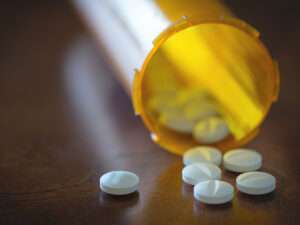 The dosage of this medication will be different for different patients. Follow your doctor’s orders or the directions on the label. The following information includes only the average doses of these medicines. If your dose is different, do not change it unless your doctor tells you to do so.
The dosage of this medication will be different for different patients. Follow your doctor’s orders or the directions on the label. The following information includes only the average doses of these medicines. If your dose is different, do not change it unless your doctor tells you to do so.
The amount of medicine that you take depends on the strength of the medicine. Also, the number of doses you take each day, the time allowed between doses, and the length of time you take the medicine depend on the medical problem for which you are using this medicine.
For oral dosage forms (capsules or tablets):
- Adults and children above age six: Initial dose is 18 or 36 milligrams per day given in two or three divided doses. Your doctor may increase your dose by 18 or 36 milligrams per week until the desired effect is achieved.
- Children up to age six: Initial dose is 0.05 milligram per kilogram of body weight per day given in two or three divided doses. Your doctor may increase your child’s dose by 0.05 milligram per kilogram of body weight per week until the desired effect is achieved.
Precautions While Taking ADHD Medications

There are many precautions one should take while on this medication. Some of these include:
- Do not take more than the recommended dose without checking with your doctor.
- Do not suddenly stop taking this medicine without checking first with your doctor. You may need to gradually reduce the dose before stopping it completely.
- Check with your doctor if you or your child have side effects, such as trouble sleeping, that continue or are bothersome. These side effects should lessen as your body adjusts to the medicine. However, check with your doctor if they continue or are bothersome.
- If you think this medicine is not working properly after you have taken it for several weeks, do not increase the dose without checking first with your doctor.
Benefits of ADHD Medications

There are many benefits of ADHD medications. Some of these benefits are:
Improves Focus
Treating ADHD with medication is often successful in improving a person’s ability to focus. This can lead to a better school or work performance, as well as improved relationships.
Reduces Hyperactivity
ADHD medications can also help reduce hyperactive behavior. This may result in fewer accidents and injuries, as well as improved social interactions. It also makes it easier to learn new information and follow directions.
Decreases Impulsivity
Impulsivity is often decreased with ADHD medication, which can lead to better decision-making and a decrease in risky behaviors. Sometimes, this can also lead to an improvement in self-esteem.
Side Effects of ADHD Medications

While there are many benefits to taking ADHD medications, there are also some potential side effects. Some common side effects include:
Stomach Pain
Stomach pain is a very common side effect of ADHD medications. These can range from mild to severe and usually go away over time. Sometimes, stomach pain can be a sign that the medication is working. If the pain is severe or lasts for a long time, talk to your doctor.
Nausea
Nausea is a common side effect of ADHD medications. It can be treated with over-the-counter medication or by stopping the medication.
Dizziness
Dizziness is also a common side effect of ADHD medications. It usually goes away within a few days. If it does not go away, or if you experience other symptoms, talk to your doctor.
Headache
Another common side effect of ADHD medication is a headache. If you experience headaches while taking your medication, be sure to talk to your doctor. They may be able to adjust your dosage or switch you to a different medication.
How To Manage Side-Effects of ADHD Medications?

There are many ways to manage the side effects of ADHD medications. Some of these are:
Talk To Your Doctor
Talking to doctors is very important because they can help you manage the side effects. They might give you some tips or change your medication. Sometimes, they can also prescribe other medications to help with the side effects.
Create Chart
If you’re having a lot of trouble managing your ADHD medication, it might be helpful to create a chart. This will help you keep track of when you take your medication, how long it lasts, and any side effects you experience.
Join Support Group
There are many support groups for people who have ADHD and its medications. Joining one of these groups can be very helpful in managing the side effects. You can share information with others who are going through the same thing as you and get tips on how to deal with them.
Stay Hydrated
One way to reduce some of the side effects is to stay hydrated. Drink plenty of water and avoid caffeine. This will help your body to better absorb the medication. Sometimes there are also medications that can help with this.
Get Plenty of Sleep
Another way to reduce the side effects is to get plenty of sleep. This will help your body to better cope with the medication. There are also medications that can help you sleep better.
Talk To Your Pharmacist
If you’re experiencing any side effects, be sure to talk to your pharmacist. They might have some tips on how to reduce the side effects or suggestions for other medications that could help.
Alternatives of ADHD Medication

There are many alternatives to ADHD medications as well. Some of these are:
Therapy
Therapy is one of the best alternatives to medication for ADHD. It can help children and adults learn how to better control their thoughts and behavior. There are many types of therapies that one can use to treat ADHD, such as:
- Cognitive-behavioral therapy (CBT)
- Interpersonal therapy (IPT)
- Psychodynamic therapy
- Family therapy
Exercise
Exercise is another good alternative to medication for ADHD. It can help improve focus, concentration, and energy levels. Exercise can also reduce stress and anxiety. It is important to find an exercise routine that works for you and stick with it.
Herbal supplements
Herbal supplements such as ginkgo Biloba, Brahmi, and Gotu kola have been traditionally used to improve cognitive function. However, there is limited scientific evidence to support their use for ADHD.
Dietary changes
Certain dietary changes can also help improve symptoms of ADHD. These include:
- Eliminating processed foods and artificial additives from your diet
- Increasing intake of omega-three fatty acids
- Reducing sugar intake
There are many alternatives to medication for treating ADHD. It is important to speak with a doctor or therapist to find what works best for you or your child. Medication is not the only option available and there are many things that can be done to help ease symptoms.
Conclusion
ADHD is one of the most common mental disorders in children and adolescents. A diagnosis of ADHD can cause a lot of anxiety for parents, who may be unsure about how to best treat their child’s condition. One option that many parents consider is medication. ADHD medication is effective in treating the symptoms of ADHD, but it is important to understand the risks and benefits before making a decision.
There are a variety of medications available for the treatment of ADHD. There are benefits as well as side effects of each medication. It is important to consult with a physician to determine which medication is best for each individual.
A Word From Therapy Mantra
Your mental health — Your psychological, emotional, and social well-being — has an impact on every aspect of your life. Positive mental health essentially allows you to effectively deal with life’s everyday challenges.
At TherapyMantra, we have a team of therapists who provide affordable online therapy to assist you with issues such as depression, anxiety, stress, workplace Issues, addiction, relationship, OCD, LGBTQ, and PTSD. You can book a free therapy or download our free Android or iOS app.
